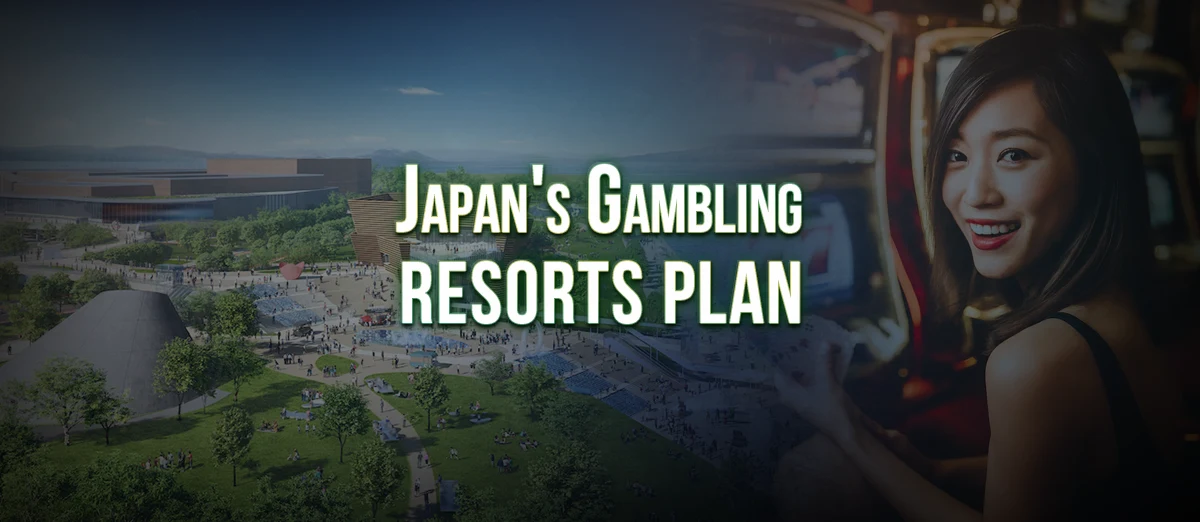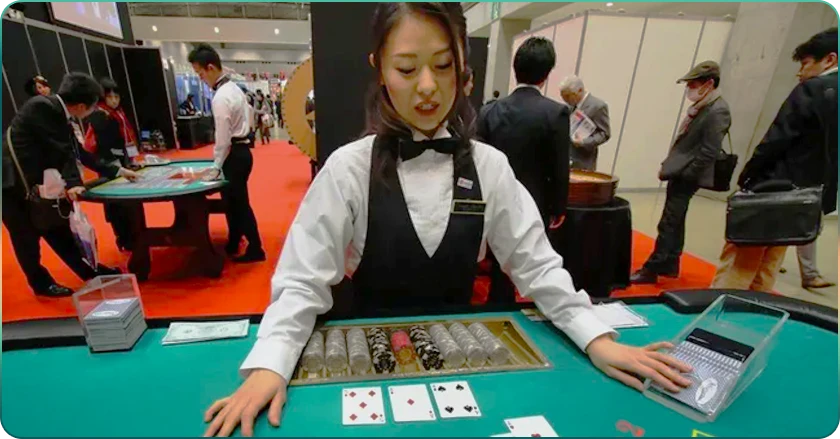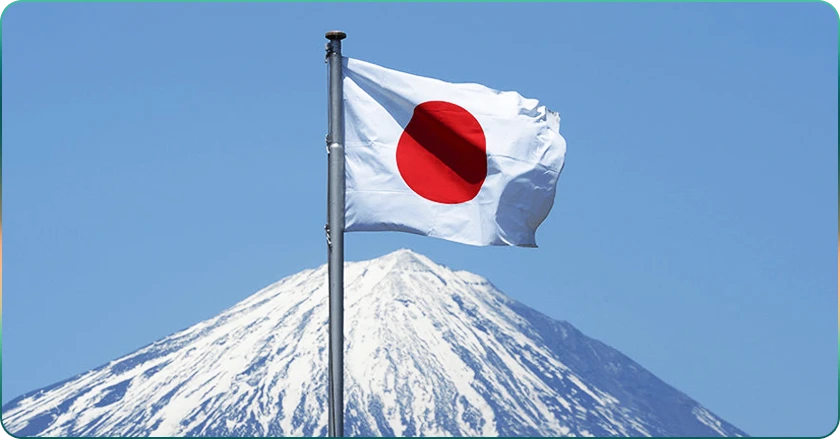Risks and Benefits behind Japan’s Integrated Gambling Resort Initiative

Think Japan, and you might well conjure up images of sushi, botanical gardens and sumo wrestling, though, arguably the latest development of significance in the country has certainly encountered its fair amount of fighting opposition; however, like its gardens, it could be one that blooms.
For the last few years - certainly, in the aftermath of the recent global pandemic, which sparked crippling recession for most economies, the country has been on the lookout for ways to generate more revenue.
It has meant that the last couple of years have witnessed what amounts to nothing less than a soap opera regarding proposals for Japanese integrated casino resorts. There are clear advantages, while it may come as a surprise to many that the country does not already have these in place, despite many Asian countries' attitudes towards gambling, particularly among policymakers in the upper echelons of governments.
Despite what has been an off-again, on-again deal after negotiations broke down last year, an agreement has finally been reached that confirms that the Osaka Integrated Resort will be built on the artificially constructed Yumeshima Island in Osaka Bay.
Meanwhile, numerous cities have been in contention to lead the bid, and it is understood that the resort will open by 2030 following numerous negotiations.
The IR Implementation Law was passed in 2018, which meant that the country could effectively start to put plans in place for the initiation of gambling tourism. It prompted a turning point in Japan's ambitions to adopt and embrace brick-and-mortar casinos as part of its long-term strategy towards attracting more external visitors and a different type of traveler, with economic recovery being identified as a fundamental priority.

Grand Vision of the Japanese Casino Resort Project
Like with anything regarding new revenue-generating projects, the biggest initial issue has been surrounding start-up capital. As a result, it is understood that MGM Corp, which has multiple venues around the globe, will fund 40 percent, Japanese investment fund Orix Corp will also contribute 40 percent, and a consortium of businesses and smaller funds will contribute the remaining 20 percent.
To put this into perspective, the outlay of MGM Resorts International is thought to be $8.5 billion—$1.3 billion higher than what they first agreed, in principle, to contribute. Rising costs around the world, particularly in the construction industry, triggered some setbacks, meaning that the original budget had to be revised, forcing renegotiations.
Of course, this also means that detailed plans have been drawn up, with a complete architectural layout and initial construction already underway on the island - chosen because of the possibility for it to accommodate a significant amount of people, notable events and multiple casino facilities, including hotels, conference centers and entertainment venues.
From an operations point of view, this is certainly a big undertaking, with so many factors to take into consideration. An ambitious casino project from the outset, and there is absolutely no mistaking who is in the driving seat regarding this Project. MGM arguably, have the most expertise than any other gambling company in the world.
The details of the Project need to take into account such things as infrastructure development, while transport to and from the island is also a pivotal factor. Utility costs will also be widely contemplated in order to service and support the sheer amount of facilities that are planned. Sustainability issues that relate to environmental elements are also likely to come under scrutiny as well, to make sure that surveys are done so as not to cause any harm to the natural habitat of any wildlife or rare types of flora.
MGM Resorts International's Ambitious Plans
This move represents a major development for MGM, which has really expanded its presence around the world in recent years. Singapore has proven to be a success, while its pending Project in Dubai is set to launch, initially at least, without a casino, at least until gambling laws are passed in the state.
Chairman Bill Hornbuckle has been a key influence and a major driver behind the company's augmentation over the years and was pivotal to its latest deal in Japan.
He revealed the key strengths of MGM, highlighting integrated resorts as one of the group's main revenue generators:
What we do best is large scale integrated resorts that, in the case of Japan, are $10bn projects. If we were to replicate the Bellagio it's probably a $9bn project. That's what we do. It's what we're good at. That's the kind of branding and kind of experience we want to take around the world.
Clearly, it's a business model that works and with the strength of the company's name, this has only helped to build its reputation over the years. As Hornbuckle alluded to, with the type of venues that it already has around the world, enthusiasts already know to associate the brand with quality.
Speaking about the game of Pachinko, which has been accepted as the only form of gambling in Japan for years, he highlighted the potential of an integrated casino resort in the country, using the arcade game as an example. While admitting that the Project does pose a risk because there has never been an integrated resort in the country before, he also acknowledges that being first could well be a good thing.
Sometimes you are more right than other times, but do we regret anything? No, but if you take a step back, Pachinko is a $30 billion business per year business. In Osaka alone it's almost $3bn-$4bn, and there are 19 million people who live there. That's gambling in its rawest sense. The lessons you learn from all of these projects [we work on], you put it into a project in a different place and you can create a $10bn integrated resort destined to attract locals and international visitors.
It is certainly encouraging news for the country. After all, everything that the company does effectively turns to gold. The response to its development in Singapore has been encouraging, while there was a significant amount of excitement when it was mooted that there would be an integrated resort in Dubai.
However, there is no doubt about the fact that this represents an altogether different challenge for MGM - Japan, afterall, is not a country that specifically has a culture of widespread gambling - at least not in the way that it is perceived in some countries of the western world.
What Could This Mean for Japan?
While this development is still very much in its infancy and, being the first one of its kind in Japan, there is definitely a great amount of potential. This change may offer a lot of benefits for the country.
Certainly, the number of jobs that it will bring to the region - not just casino and tourism roles, but also construction, will make a great difference to the local economy in the interim while development is underway.
Furthermore, the revenue that is generated from the casino will be subject to taxation, which will help to generate even more for the local economy to contribute towards infrastructure development.
Osaka is recognised as being one of the major financial centres of Japan, which could provide the resort with a natural, local target market. There is a certain amount of crossover beteween gambling and finance - especially on the trading of investment banking side of things. Furthermore, bankers usually have enough disposable income to be attracted to such venues, so the strategic position of the planned integrated casino resort in Japan could well pay off.
It will also be really interesting to see what the effect is on external tourism. Perhaps the biggest market could be for surrounding countries, with it being a well-known fact that there is a huge demand for gambling in China, with many Chinese usually flocking in their thousands to neighboring Macau to participate.
Certainly those who live in the east of the country may find Japan to be a much more convenient alternative, especially in terms of logistics. Meanwhile, countries such as South Korea, could also likely be on the radar of MGM, with this likely providing a much closer alternative than Singapore.

Balancing Tradition, Innovation and Economic Potential
Although, there is a lot to like about Japan as a country; not just its bustling cities, though also the spectacular countryside, so taking a vacation that combines all of the different elements, in addition to a Japanese gambling experience and a novel stay on Yumeshima Island.
Perhaps a stumbling block for MGM regarding the project could be finding trained and qualified staff for the casino arm of the business. However, the fact that the development is being earmarked to open by 2030, one option is to hire locals, six to 12 months previously and send them on a training course to some of their resorts around the world, possibly Singapore being the most logical.
Depending on the success of this integrated casino resort, it could well pave the way for others in the country and perhaps alert other brands such as MGM's competitors that it is a good idea.
The more casino resorts that open in Japan, the more successful it is likely to be for the country's economy, especially when factoring in the financial bump it will get from taxation, courtesy of casinos.
It is a long time coming for Japan to launch an integrated gambling resort in the country, though, early signs so far, despite some minor teething problems, that this has the foundations of success.





Review this Blog
Leave a Comment
User Comments
comments for Risks and Benefits behind Japan’s Integrated Gambling Resort Initiative